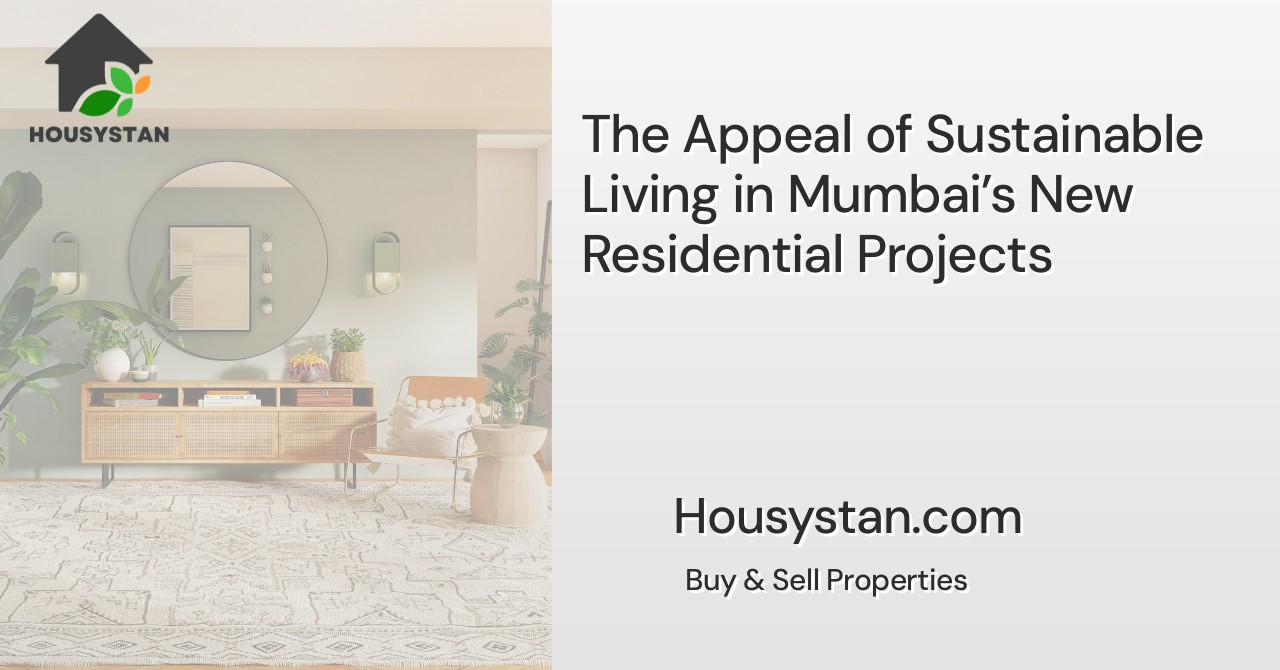The Appeal of Sustainable Living in Mumbai’s New Residential Projects
Read latest blogs and articles from Housystan

The Information mentioned here was last updated on:
29/1/2026Sustainable living has emerged as a defining trend in Mumbai’s new residential projects, attracting environmentally conscious homebuyers seeking a blend of comfort, convenience, and eco-friendly features. The financial capital of India, Mumbai, is witnessing a transformative shift in real estate development, with leading builders integrating green technologies and sustainable practices to create healthier and more responsible communities. As the city grapples with challenges such as pollution, water scarcity, and rapid urbanization, sustainable housing solutions are increasingly being viewed as the future of urban living.
Modern residential projects in Mumbai are designed to minimize environmental impact while maximizing energy efficiency and resident well-being. These developments often include advanced rainwater harvesting systems, solar panels, energy-efficient lighting, and smart waste management solutions. Landscaped gardens with native plants, green rooftops, and ample open spaces further enhance the ecological balance and improve air quality. Developers are also prioritizing the use of sustainable construction materials and adopting environmentally responsible building standards, such as IGBC and LEED certifications, to ensure long-term sustainability.
Homebuyers in Mumbai are drawn to sustainable residential projects not only for their positive environmental impact but also for the lifestyle benefits they offer. These properties typically feature improved air circulation, better natural lighting, and enhanced water conservation, leading to lower utility costs and healthier living environments. Additionally, sustainable communities often promote a sense of well-being by providing amenities such as jogging tracks, bicycle lanes, organic vegetable gardens, and recreational spaces for residents of all ages.
- Verified Tenants/Buyers
- Unlimited Property Listing
- Zero subscription/charges fee
The strategic locations of these new eco-friendly projects across Mumbai, from Bandra to Powai and Thane, ensure convenient access to essential services, public transportation, schools, and healthcare facilities. This integration of sustainability and urban connectivity significantly boosts the appeal of modern living spaces in the city. As environmental awareness grows among Mumbai’s residents, sustainable residential projects are set to redefine the future of housing, offering a harmonious balance between urban comfort and ecological responsibility. For those seeking a smarter, greener lifestyle, Mumbai’s innovative housing developments stand out as the ideal choice.